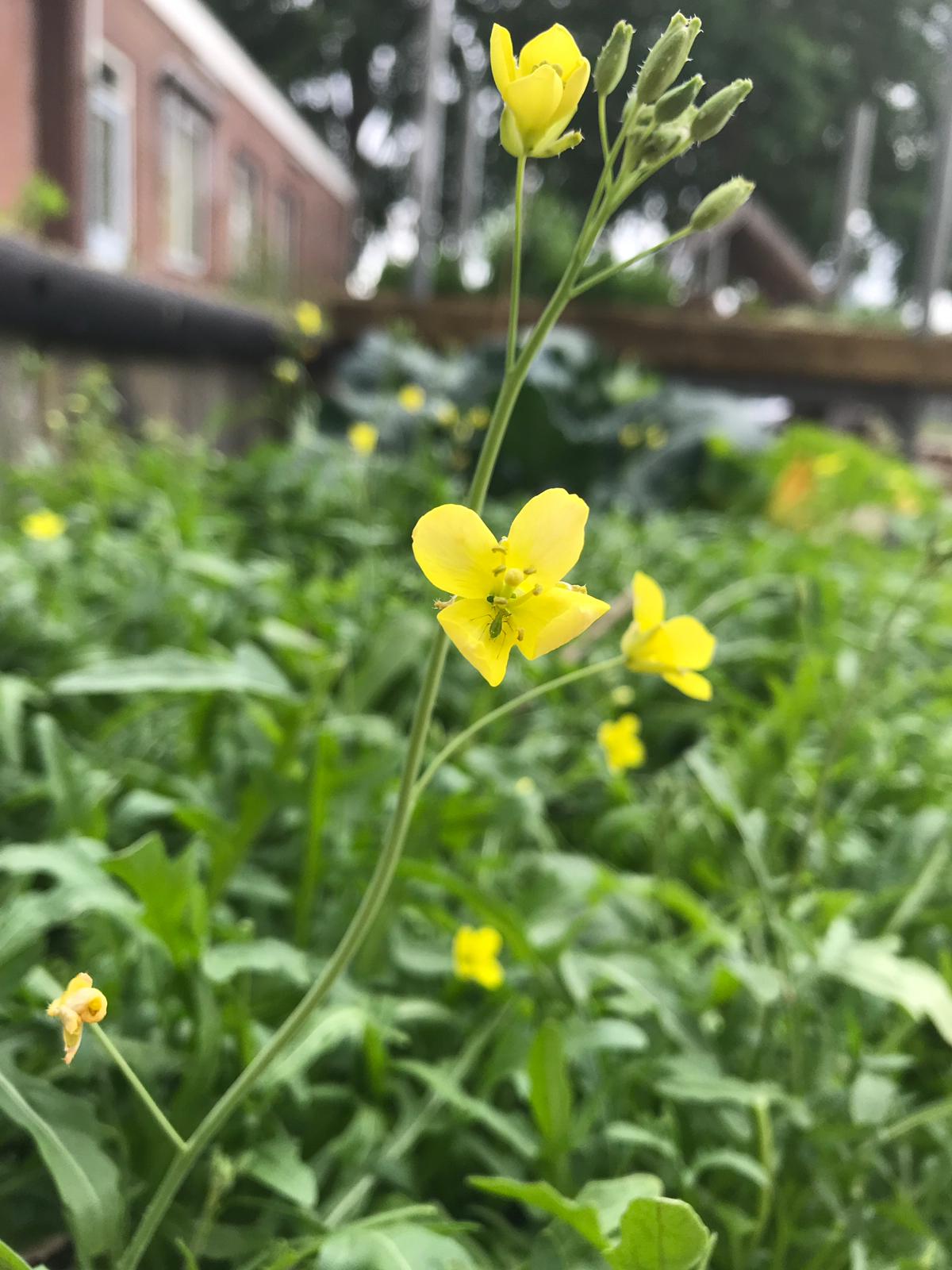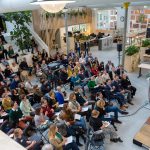
Utrecht Community consists of more than 25 organizations that all contribute to integrated sustainability from their own discipline. In this blogpost, one of UCo’s communitymembers shares its’ knowledge and ideas on a specific topic.
Written by: Joseph D. Simpson from Except Integrated Sustainability
The 20th of May, following the recent UN report outlining the devastating degradation of our planet’s natural biodiversity, was World Bee Day. To celebrate these magnificent creatures which are vital for the preservation of earth’s ecological balance, we asked Jon Woning, Except’s resident biotechnologist and bee enthusiast, to talk us through the importance of cross-pollination in our society.
“Bees play a huge role in the systematic cultivation of fruit, as the main pollinators in orchards,” says Jon. “Together with other pollination dependent crops, this represents a rough third of all our food on the planet.” While bees are the public image of cross-pollination, this critical natural process does not belong to the bees alone. A large number of insect species, including bumblebees, wasps, and flies, hold together our ecosystems with cross-pollination. These insects are a necessity for over 70% of wild species of plants, and a third of the world’s agricultural crops.
The FAO estimates that between $235 and $577 billion (U.S.) worth of annual global food production relies on the direct contribution of pollinators, and over 4,000 different species of bees contribute to pollination. For a country like the UK, the value of the bees’ services were estimated at £200m a year. The retail value of what they pollinate was valued closer to £1bn (UK National Audit Office, 2007).
The honeybee is by far the most protected species, as they provide a source of economic value. The decline in honeybees signifies a terrifying trend for other insect species, that do not receive this protection. Insect populations in Europe have dwindled over 90% over the last two centuries, due to human interference.
“World Bee Day is a great opportunity to give these critical critters the attention they deserve,” says Jon. “Bees are truly fascinating creatures, with complex societies and social structures that we as humans can aspire to. Their function as guardians of flora-rich ecosystems, ensures their place and purpose in this world.”
There are around 20,000 species of bees, only one of which is the common honeybee. They come in many colours. Most bees don’t dance, and, only a few species make honey.
“We have to recognise these insects’ pivotal role in the natural world. It’s critical to regard their well-being as a vital indicator for the health of our ecosystems. When our protected bees fall we will follow, given time.”
Important insect populations also suffer at the hands of our domestic efforts. Many gardens today are boarded up or turned into stone patches. Together with the huge grasslands which are used for agriculture – but are deserts to bees – our own backyards make up part of these shrinking ecosystems. As a result, the bees’ natural territory, and their ability to spread from ecosystem to ecosystem has been severely limited.
“Because of this fact, a lot of flowering flora, including those in your gardens, have seen a decline. Without bees and other pollinators, the world is literally a less colourful place. Individuals have the ability to make a large positive impact on the decline of bee species and the ecosystems that support them. Please help the bees around you, and replace some of the stone and grass with some (native) flowers!”
Since a few weeks we have our own garden at Utrecht Community. It is full of flowers, organic vegetables and fruits. These of course attract a lot of small insects and hopefully we can support the bees as well.


No comment yet, add your voice below!